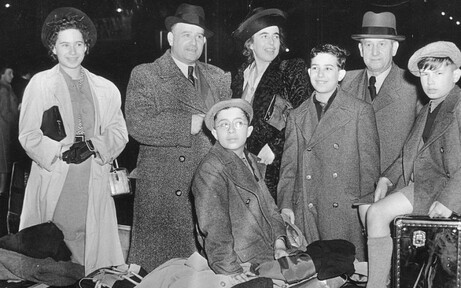On Jewishness and other miracles – Liam Hoare in Haaretz:
‘Ten years ago, after leaving the closed Satmar Hasidic world in which she grew up, writer Deborah Feldman upped sticks to begin life anew in Berlin.
The author of the best-selling memoir "Unorthodox," adapted into an award-winning Netflix series in 2020, held out the possibility of becoming part of a new Jewish community – one that was more inclusive, more dynamic and freer than the one she had known in Brooklyn.’
(…)
‘Published in Germany last year, the book confronts what she sees as the transactional relationship between the German state and the country's Jewish community. This linkage forces the country's near-120,000 Jews to perform a certain role for the benefit of society at large, she argues, adding that those willing to assume that responsibility benefit from the power and financial and institutional support afforded to organized Jewish communities in Germany.
Jews like her who think differently are ostracized and feel unheard and unrepresented, Feldman claims. This is particularly true of those who criticize Germany and its Jewish community's "unconditional loyalty to the State of Israel," she declared in a widely circulated op-ed published by The Guardian in November.’
(…)
‘In an interview from her Berlin home, she slams those she sees as "fake" Jews: the converts and "pseudo-converts" to Judaism who "have no Jewish experience and believe that the only aspect of their Jewish identity is their loyalty to Israel."
These Jews, she charges, "lie about their ancestry and their upbringing in order to position themselves politically in ways that are personally profitable to them."’
(…)
‘Some German Jews have pushed back against her description of events. For instance, Hamburg-based journalist Andrej Reisin in the German trade publication Übermedien wrote that Feldman has been "omnipresent" in the German media.
And her appearance on the nightly talk show "Markus Lanz" in which she took on Vice Chancellor Habeck went viral.
"Deborah Feldman was on my show several times," the show's host tells Haaretz. "She is a very smart woman. She not only gave our viewers profound insights into ultra-Orthodox Judaism, but also vividly and empathetically described the current situation for Jews in Germany."’
(…)
‘It is not only in the German media that Feldman has been making waves. In an interview with Dutch newspaper NRC, she reportedly said that Jews who migrated to Germany from the former Soviet Union in the 1990s – who make up about 90 percent of German Jews today – "have no idea about Judaism at all," performing Jewishness in order to obtain a German passport.’
(…)
‘Nobody cares, she adds, "because secretly they all know that Jewish life in Germany has traditionally been a performance," with German Jews acting out Jewishness for the government's benefit, receiving financial and institutional support in return.
With such views, perhaps it is no surprise that some German Jews don't want Feldman speaking for them either.
The author "has no knowledge of the Jewish experience and community in Germany," one shaped by its near-total destruction during the Holocaust, writer and journalist Mirna Funk wrote in Jüdische Allgemeine last week.
Reisin, meanwhile, opined that Feldman is part of a "bubble of mainly Berlin-based, mainly radical leftist, mainly Israeli and American expats who for years have thought they have to tell German Jews how things ought to be."’
(…)
‘Feldman is a German citizen, has a diverse group of friends and colleagues, and has no plans to go anywhere. "I feel I have as much right to be here as anyone else," she says, defiantly. "I'm sure I'm very inconvenient for many people in positions of power. But until they actually try to deport me, I'm going to stick it out for as long as I can."’
Read the article here.
Usually the question who is Jewish or not is something that orthodox rabbis get excited about, but in Germany this question has been a popular conversation topic – not to mention all the articles written about it – for a long time. No, I’m not referring to the Nuremberg Laws.
The name of Maxim Biller is omitted in this article, but this German author was very good at confronting people with their identities that according to some are fake. By the way, those who can claim ‘my identity is not fake’, have not long thought about the subject, but that’s a different point.
And isn't identity by definition a performance?
Yes, there is some hysteria in Germany when it comes to Jews and Israel, perhaps this is a symptom of remembrance culture its last phase, but we should not forget that both Jews and Germans are delightful scapegoats.
Feldman wanted to have a bigger audience in Germany, I don’t blame her for that. And she didn’t want to create an audience as a German novelist or a German poet – her interest in writing novels or poems appears to be limited – she wanted a bigger audience as a Jew. (Another question: what on earth is Jewishness? Something like manliness but different?)
She succeeded in her task. That's the main thing.
One can only applaud her for that.
